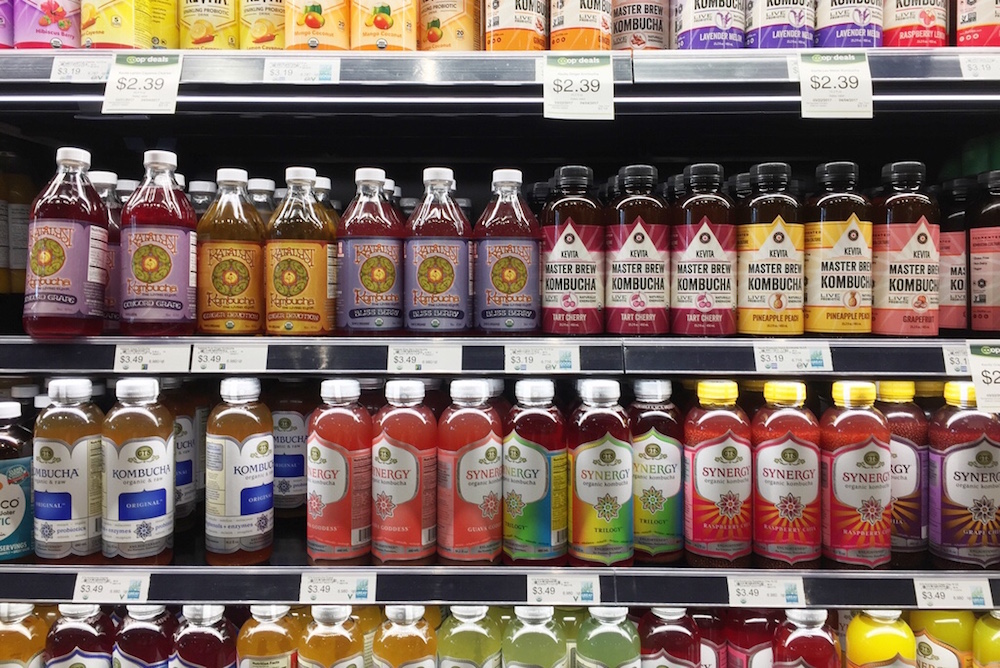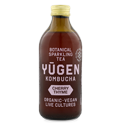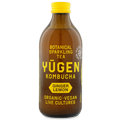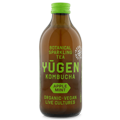
Kombucha, or the fermented tea drink, is the fastest growing category in the functional beverages industry. Long described as the ultimate health elixir, kombucha fits right into the current trend towards a conscious consumption of healthy foods. Discover here why kombucha is becoming more popular.

Tea of mystery
Kombucha tea is a traditional non-alcoholic fermented beverage originating in the Orient and its inception is shrouded in mystery. There are plenty of colorful stories describing the origin of the magical mushroom tea, all of which take place in the Japanese, Korean, Eastern China region of the world. One of those tales depicts the fifth century sick Japanese emperor In-giyo who summons the Korean doctor Kombu to heal him. According to the legend, the Japanese emperor was treated with kombucha and recovered against all odds.

Elixer of life
It's more likely a combination of factors, rather than one source of influence, responsible for the rise in kombucha's popularity but the many claims regarding its therapeutic potential against a host of maladies certainly helped spread the hype. Some of its beneficial effects have already been demonstrated in published medical journals such as: anti-microbial, anti-oxidant, anti-carcinogenic (Jayabalan et al., 2011), anti-diabetic (Aloulou et al., 2012; Bhattacharya et al., 2013), treatment for gastric ulcers (Banerjee et al., 2010) and high cholesterol (Yang et al., 2009). It has also shown to have impact on immune response (Ram et al., 2000) and liver detoxification (Loncar et al., 2000). However, it's only recently that kombucha has become more popular on the consumer market as the probiotic craze has gone mainstream.

Consumer trends
Consumers are driving the demand and are shifting behaviour. The most powerful trend in today's marketplace is consumers' desire for foods and ingredients that are 'naturally functional'. It's the key driver of most innovation in healthier food and beverages. BevNet reported in 2016 that while carbonated soft drinks are in the middle of a five-year decline, natural and functional beverages should expect to see a 40 percent dollar growth in the industry.

From home brew to billion euro industry
Although it's been around for a long time as a hearty staple of the alternative health market, kombucha only recently made its way back into the spotlight as a social trendsetter, generating 30 million in sales in 2007, 1 billion in 2018 and a prediction of 5.5 billion in 2025.
Sales of probiotic and fermented foods and drinks are rising in Europa, but the craze still trails behind the US, where many established kombucha brands such as GT's, Brew Dr., Humm, Kevita, etc. distribute nationwide and are taking over traditional retail channels. Some have speculated that this is due to European manufacturers and retailers being slower to respond to the consumer demand than other markets. Nonetheless the list of European kombucha producers is growing rapidly. Many of them are still in the start-up phase and just recently swapped their home brew kitchen for a professional micro brewery setting.

But change is happening fast, according to a 2016 report, the Europe kombucha market was worth 180million in 2016 and estimated to be growing at a CAGR of 24.5%, to reach 1.3 billion by 2025.
Market example
Yugen Kombucha aims to become one of those emerging players in the European field. An authentic brand with a charming story and powerful vision, determined to make a difference in a rapidly changing soda market. With our all natural, vegan, raw and organic kombucha inside sleek and clever designed bottles and cans we try to be a market example of a new generation of beverages brands, especially appealing to millennials in search of healthy products and honest values. Yugen builds connections with their target audience through art, music and planet earth initiatives to create long lasting brand loyalty. We believe that in a market where many new players in the field pop up daily, it's only the ones with genuine brand stewardship that will make a long lasting positive impact.
Whatever the pace or rate, it's clear that kombucha is here to stay. So grab a bottle from the shelf, and see for yourself what all this fermented tea trend is all about.

 I like Yugen Kombucha
I like Yugen Kombucha
 J'adore Yugen Kombucha
J'adore Yugen Kombucha






